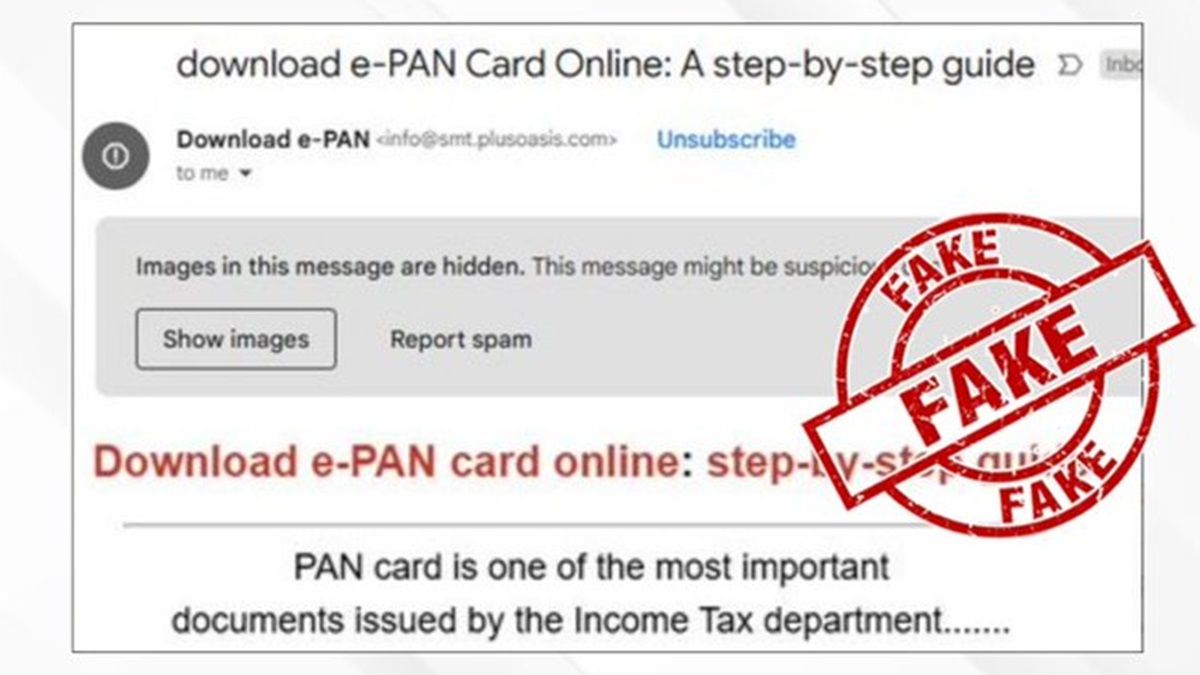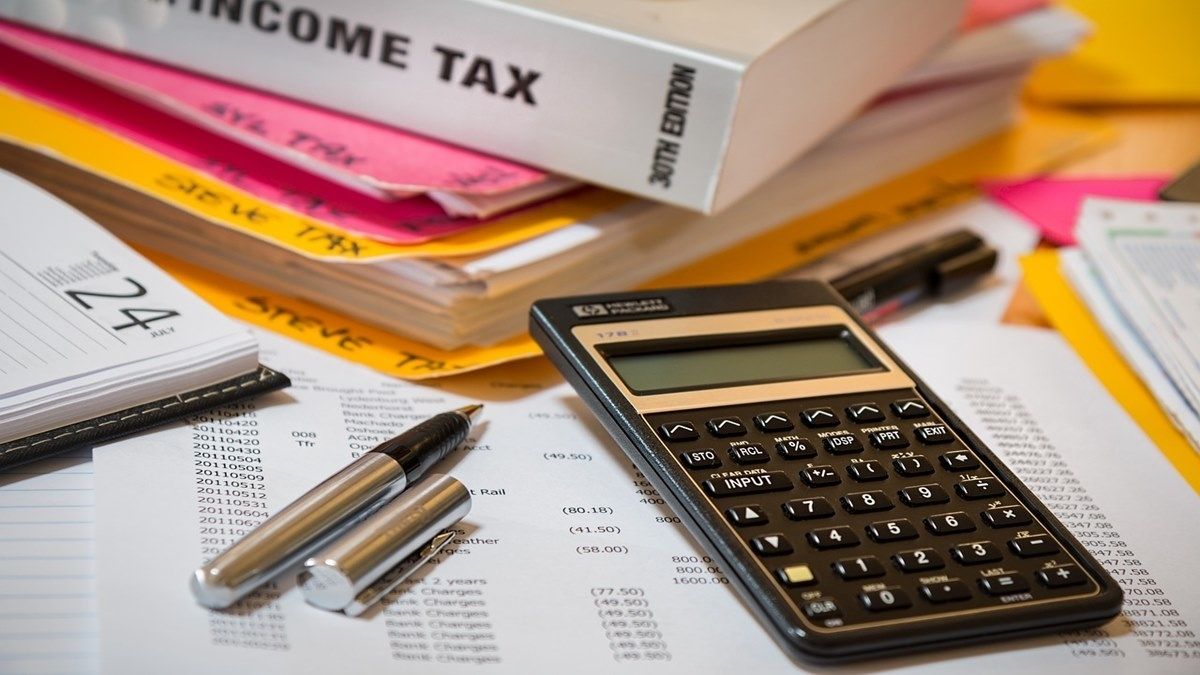Beware Of e-PAN Card Scams: Have you also received an email to download e-PAN card? This could be a fake email. Scammers always adopt new methods to trap you. Do not believe such emails as they are fake. Fraudsters always adopt new methods to trap people. Do not trust such e-mails nor reply, download or click on unknown links. Making such a mistake can cause huge loss to you. Fact Check of the Press Information Bureau (PIB) has identified a phishing scam regarding emails related to downloading e-PAN cards, in which fake emails claim to be from the Income Tax Department and ask users to download their e-PAN cards. Cheats to download.
Taking advantage of the discussion about the government’s new PAN 2.0 project, fraudsters i.e. phishers are sending fake e-mails to deceive people. They are using such e-mails in which it is being said that you have to download your e-PAN card. PIB has recently warned people about this phishing fraud. Through a post on Twitter, the Bureau has said that have you also received such an e-mail asking you to download your e-PAN card? This is a fake e-mail.
📢Have you also received an email asking you to download e-PAN Card❓#PIBFactCheck
⚠️This Email is #Fake
✅Do not respond to any emails, links, calls & SMS asking you to share financial & sensitive information
➡️Details on reporting phishing E-mails: https://t.co/nMxyPtwN00 pic.twitter.com/odF2WdyMzF
— PIB Fact Check (@PIBFactCheck) December 22, 2024
Never respond to e-mails or links that ask you for sensitive or financial information. It has been advised not to respond to calls and text messages for such information. In fact, you may have to face huge financial loss if you fall prey to emails sent by scammers for the purpose of fraud. These scammers can even empty your bank account.
Also read: Income Tax Rule Changes 2024: There have been many important changes in the Income Tax rules, these things will have to be kept in mind while filing returns in 2025.
Income Tax Department warned
The government has warned people about this new type of scam. You are asked to be careful about the emails received for downloading e-PAN. Such emails often contain phishing links designed to steal your personal details. Recently the Income Tax Department has issued a warning stating that they never ask for your PIN number, password or any other financial account information through e-mail. If you receive any such e-mail, you should ignore it and not share your personal information.
What is phishing?
Phishing is a method in which people attempt to obtain sensitive information such as usernames, passwords, and credit card details while posing as a trusted entity. These usually impersonate financial institutions, popular social websites, auction sites, online payment processors or IT administrators to defraud common people. Phishing is usually done via e-mail or instant messaging and often asks users to visit a fake website that looks identical to the real one.
Also read: PM-JAY For Senior Citizens: How to enroll the elderly for free health insurance of Rs 5 lakh, how to get the benefits of Ayushman Bharat PM Jan Arogya Yojana
Income Tax Department’s advice to people
- If you receive an e-mail from someone claiming to be an authorized person of the Income Tax Department or asking you to visit the Income Tax website, do not respond.
- Do not open any attachments. Attachments may contain harmful code that can infect your computer.
- Do not click on any link. If you have clicked on a link in a suspicious e-mail or phishing website, do not enter confidential information like your bank account or credit card details.
- Do not copy and paste the link from the message into your browser. Phishers may make the link appear genuine, but it may send you to different websites.
- Use anti-virus software, anti-spyware and firewall and keep them updated. Some phishing e-mails may contain software that can harm your computer or track your Internet activities without your knowledge. Anti-virus and anti-spyware software and firewalls can protect you from accepting such unwanted files.
report here
- If you receive any e-mail or find any website which you think is impersonating the Income Tax Department, then send the link of that e-mail or website to webmanager@incometax.gov.in. You can also send a copy of it to incident@cert-in.org.in.
- You can forward the message as is or provide the Internet headers of the e-mail. Internet headers contain additional information that helps us trace the sender.
- When you send us an e-mail or header information, delete the message.
- If you receive any phishing mail related to Income Tax Department, please forward it to incident@cert-in.org.in.








